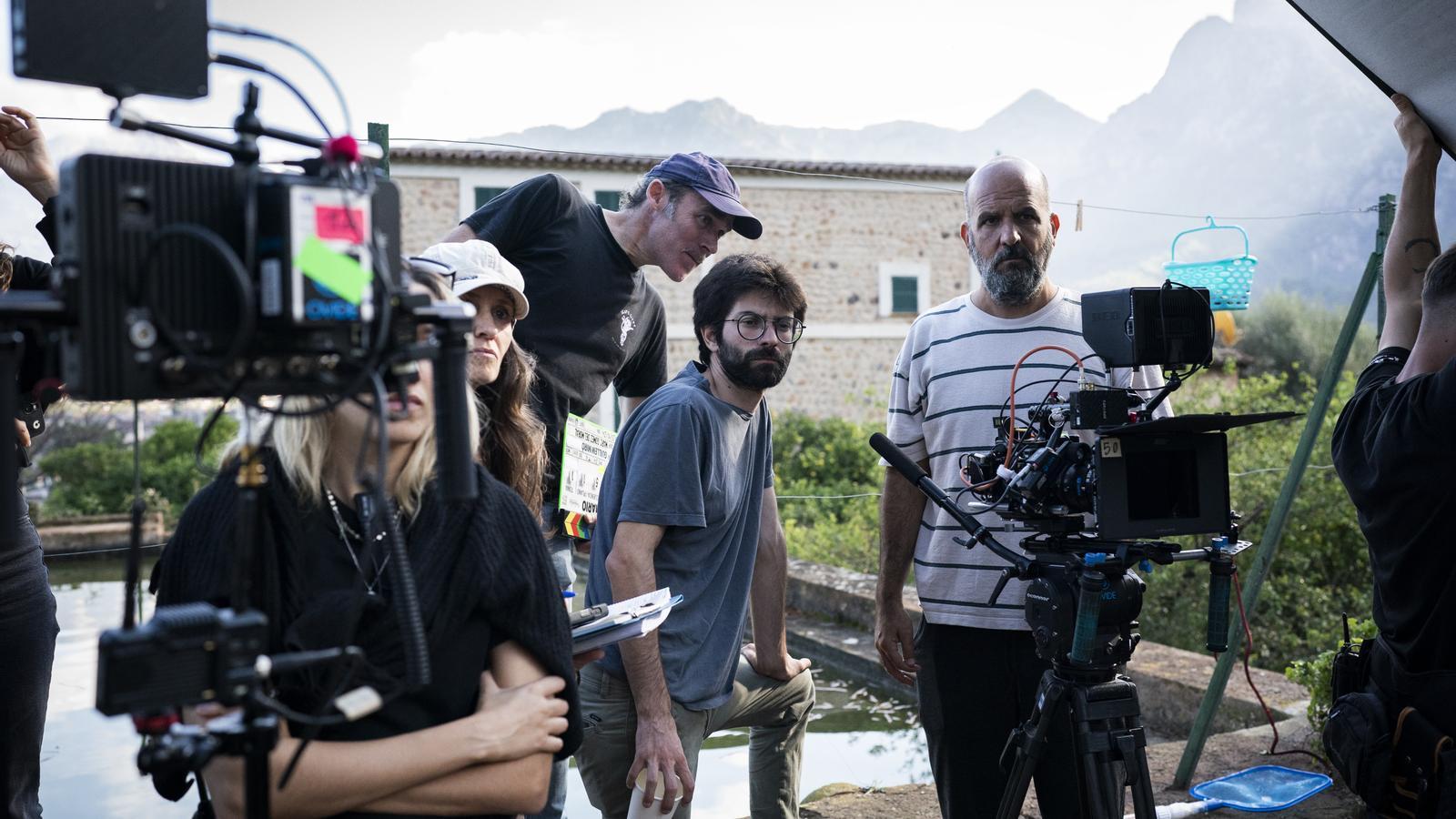Overcrowding also endangers filming in the Balearic Islands.
Price increases and the denial of licenses during peak season are limiting the possibilities of the audiovisual sector.


PalmWhen he began thinking about his second feature film four years ago, Solleric filmmaker Guillem Miró envisioned it as a 100% Balearic production. "My intention was to shoot it entirely here, with a local team of professionals. We already had the locations and everything," the director explains a few days before the premiere—on August 1—of the film, titled Mario and included in the official national section of the Atlántida Mallorca Film Fest. "Shortly before starting filming, we had to change our plans. Since the budgets we work with here are so low, when a production company from outside comes in, which in our case was from Valencia, they have more leverage and more room to negotiate the terms of the co-production. So in the end, we only shot part of it here and part of it abroad, and we also had a part of it, and we also had a part of it, and we also had a part of it, and we also had a part of it, and we also had a part of it, and we also had a part of it, and we also had a part of it."
Among the factors that led to this modification of the project, which is not an exceptional case, Miró points to the lack of coordination between institutions, the limitations of existing grants, and the high cost of filming in the Balearic Islands at the moment. "This doesn't just affect film and audiovisual productions, of course. It affects everyone's daily lives, but it also has consequences for filming. Film is an art form that requires a lot of resources, and quality has improved significantly in recent years, so you have to raise a significant budget to be able to shoot a film. If a significant portion of this money is spent there, it's very difficult to compete with other locations," he explains. Today, according to various professionals consulted, the price of a day's catering for a film shoot in Mallorca can be, on average, double that of the same service in Barcelona.
"We're disturbing the tourists"
In fact, many production companies have long ruled out filming during the peak season, which is increasingly extending into the calendar and restricting opportunities for the audiovisual sector. "Not only because of the prices, but also because more and more municipalities are not granting filming permits for a significant portion of the year. They don't want us to be in the way of tourists. Plus, we can't risk running into a traffic jam that prevents us from arriving at the location on schedule. On a shoot, you have to focus a lot on prints to minimize the jams. You can't afford for the entire crew to arrive an hour late because the road was blocked; you're always on a tight schedule," explains a producer with more than twenty years of experience.
"During my recent time at the helm of the Mallorca Film Commission, we lost a couple of shoots, some of them very important, because they were not compatible with the effects of tourism, in several ways. On the one hand, there is the issue of permits, because many city councils consider that industrialists can help the project, but their main job... a series that was supposed to be filmed here ended up in Catalonia because it was 40% cheaper, and a high-budget film ended up moving to Sardinia. 2016 until last February. In any case, it should be said that communities such as the Canary Islands, Navarre and the Basque Country also have tax incentives that have also served to position them as locations for all types of filming.
This is confirmed by Palma Pictures, one of the main filming companies service –which provide material and technical equipment to production companies for all types of filming, from commercials to feature films, including music videos– in the Balearic Islands. "It's true that overcrowding sometimes hinders the ability to obtain licenses to carry out filming. We use the Iberian Peninsula or the Canary Islands in case filming can't be carried out on the island," explain sources from this company, which currently has offices in Barcelona, the Canary Islands, and Lisbon, in addition to the original one, located in Marratxí.
Promoting the attraction of international filming was one of the main focuses, as it still is now, of the Menorca Film Commission, which in recent years has collaborated on projects such as Inheritance has a price, the most-watched Italian film on Netflix in 2024—was filmed in different locations on the island. However, these organizations' goals also include stimulating and consolidating the audiovisual industry on each of the islands, a challenge that currently seems far from a reality.
In the case of the Mallorca Film Commission, the entity has also undergone several changes recently. In addition to the departure of Pedro Barbadillo, who had been at the helm at different stages, the restructuring of the Mallorca Tourism Foundation, now the Responsible Tourism Foundation, to which it belongs, has also had its effects. Among them, the fact that the latest call for grants for audiovisual projects included a clause excluding "those that, explicitly or implicitly, convey messages that could harm the image of Mallorca as a tourist destination committed to sustainability, including those that show an unfavorable view," and which calls into question the nature and objectives of this type of aid. "This is directly linked to the change in the entity's concept. If we provide aid to productions, what we don't want is for them to encourage certain behaviors or give a negative image of the island," explains Marco Táboas, Island Director of Tourism for the Consell de Mallorca.
In any case, the producers and filmmakers consulted do highlight the activation of the ICIB, the Institute of Cultural Industries, since the arrival of the current director, Diana de la Cuadra. "It's true that filming in the Balearic Islands is complex these days and that rising prices are having an impact, but the ICIB is working to respond, and the solution can't be short-term. These are long and complex processes," says the ICIB director, who emphasizes the desire to recover, update, and provide content for the Balearic Islands Film Commission. "It should be an umbrella for the island entities and should also serve to showcase local talent. We hope to be able to present a new version of the website during the third quarter of the year, and, among other things, it is planned to include a directory of all the professionals in the sector," she announces. "The pity is that intentions aren't enough, which are appreciated, but resources must be provided and there must be a real interest in the sector demonstrated. We all like to talk about cinema, but, when it comes down to it, under these conditions, it's very difficult to say that an audiovisual network exists," conclude sources from one of the main production companies in Illescas.
